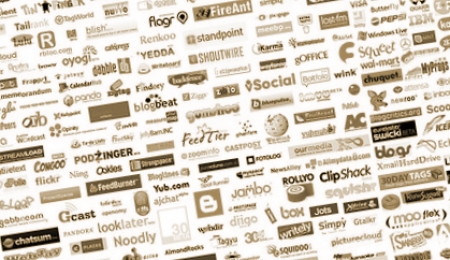It all started with a comment after Monday's review of Flowd, from Roberto Virga:
The failures of Google's Buzz and Apple's Ping demonstrate that, when it comes to social networks, the dust has pretty much settled. Even if they had the financial backing of a huge company like Apple, Google, or Microsoft - and they definitely don't - they'd be still doomed to failure
After some thinking time, I'm going to disagree. Just because there are some elephants in the room does not take away from the fact that a small, well maintained and targeted social network can easily live alongside Facebook and Linked In (actually take Linked In, yes it's just done a huge IPO but it's been growing since 2005, alongside Facebook).

What is a social network? It's a group of people, with a shared interest, using an online tool to stay in touch, to share information, to support each other, and to potentially further individual or group goals. Yes, you could do all this from a page in Facebook, but for many people they want to make it their network. Ownership is important for identity and in some cases you want to have something specialist.
For all of Flowd's faults, if you're looking for a network to stream music, Facebook is not the place for it. Last.FM's musical recommendation system works well in Last.FM because that's what it was designed for. At the other end there are niche interests that are best served by catering for 500-1000 members in their own safe space.
And if the growth for social networks is going to be in smaller more personal sites, then surely the key way to access them is through the most personal device someone has, their mobile phone?
Modern social networks are not based around huge screens of text, they are about expression, which can be done in short text and messages, but with the variety of sensor technology on the modern smartphone you're not limited to a comment.
It's impossible to have a 'one size fits every use case' social network - and that's why I think we're going to continue to see smaller networks pop up, just as we saw blogs pop up on niche topics, newsgroups before that, email lists before that. The key thing is that what makes them unique is the constant flow of information. And that's not something that is always guaranteed when sitting behind a desk.
That's why the smartphone is the key to many social networks, and why I think we'll continue to see more niche networks pop up. Many of them will last less than year, some of them will last the distance, and a few will become big names. These niche networks provide a service that people want, and while some won't be worth the download of the client, others will turn out to be invaluable.
Expect to see more networks in the future, on the handset, in the stores, and ready for download. They might not serve 95% of a handset audience, but for the people they do serve, they're important, they can be profitable, and I think that's why they're not going away in the short, medium or long term.
The catch, as always, will be finding the good ones.
-- Ewan Spence, June 2011.
